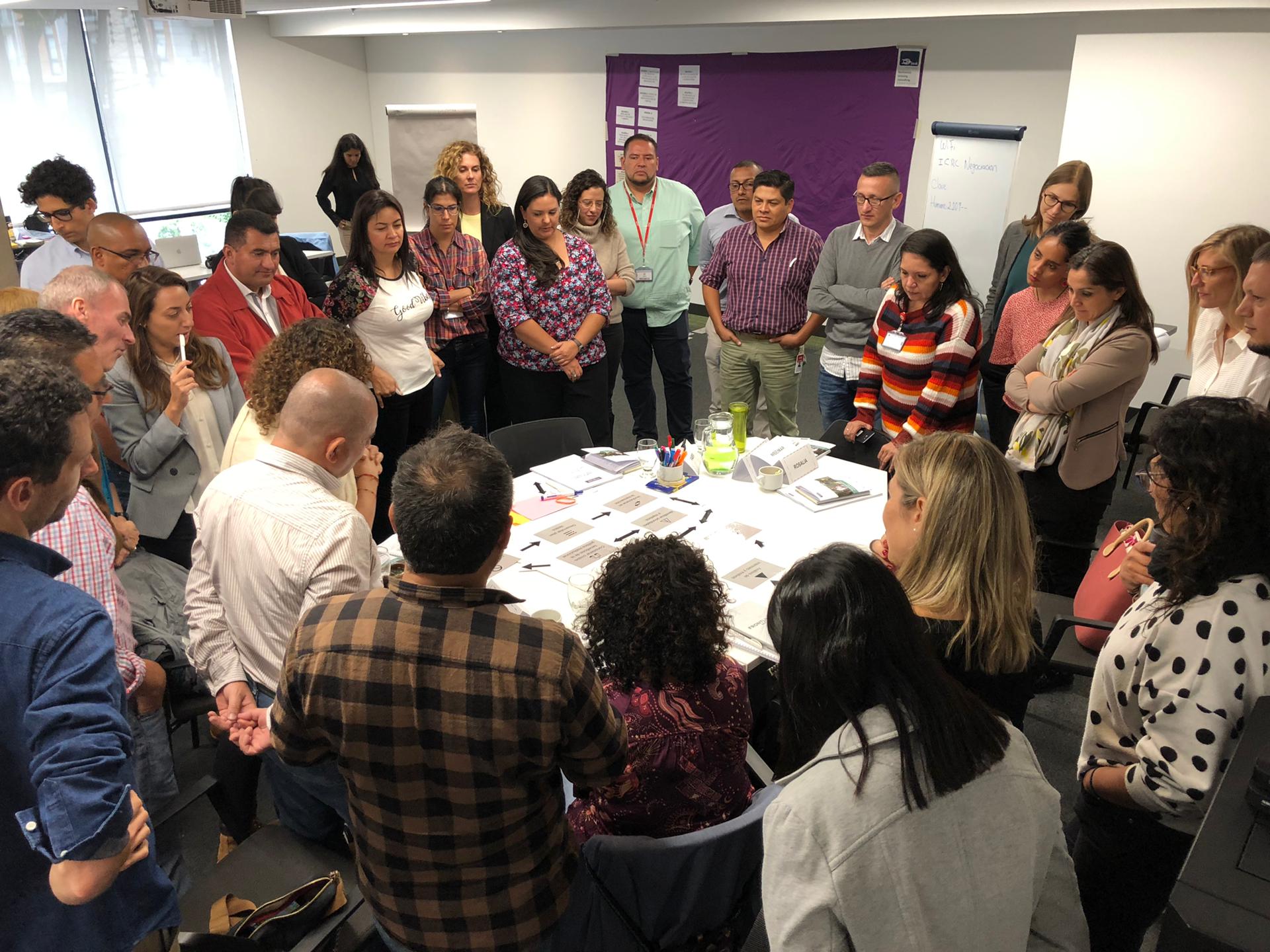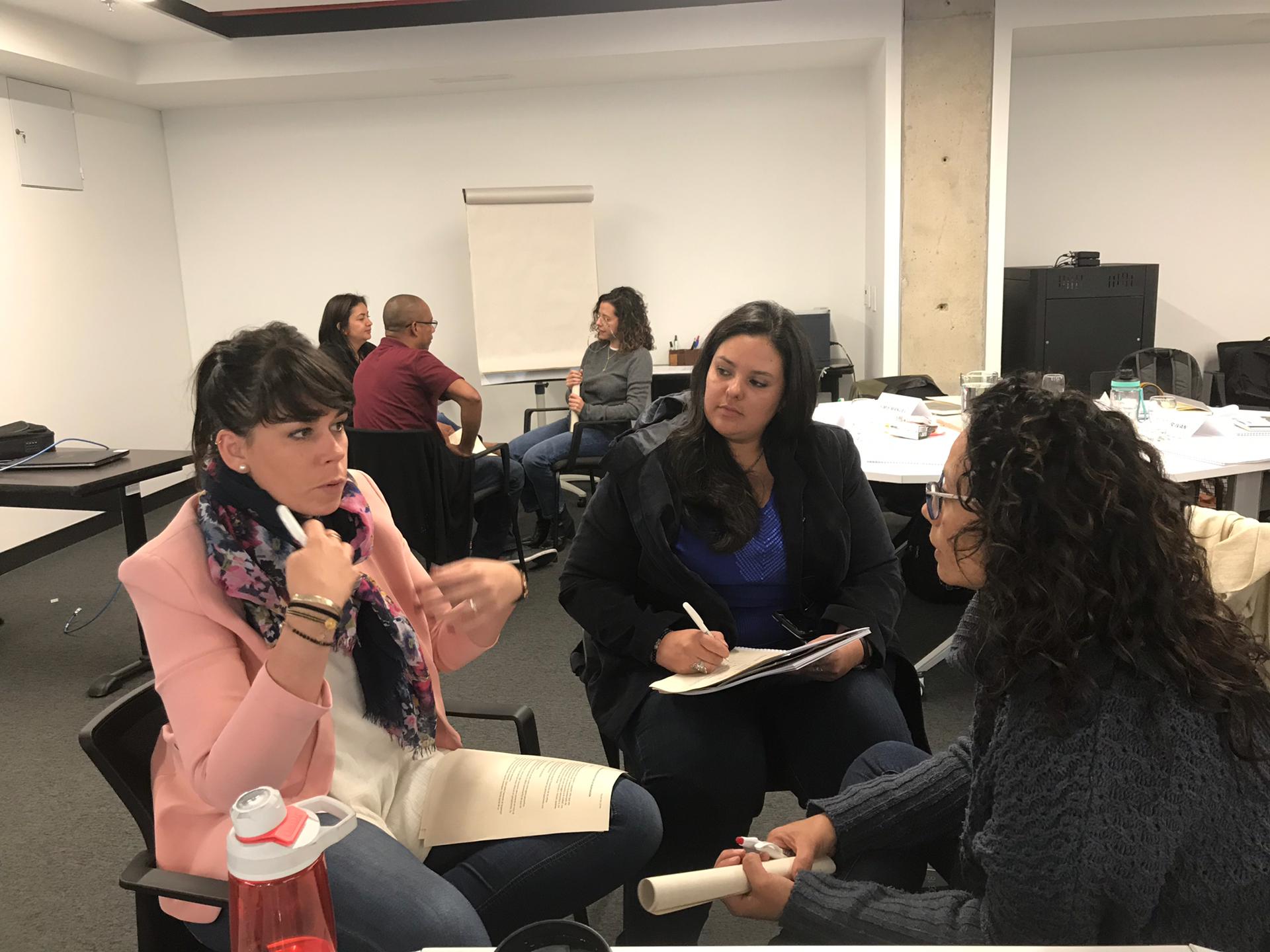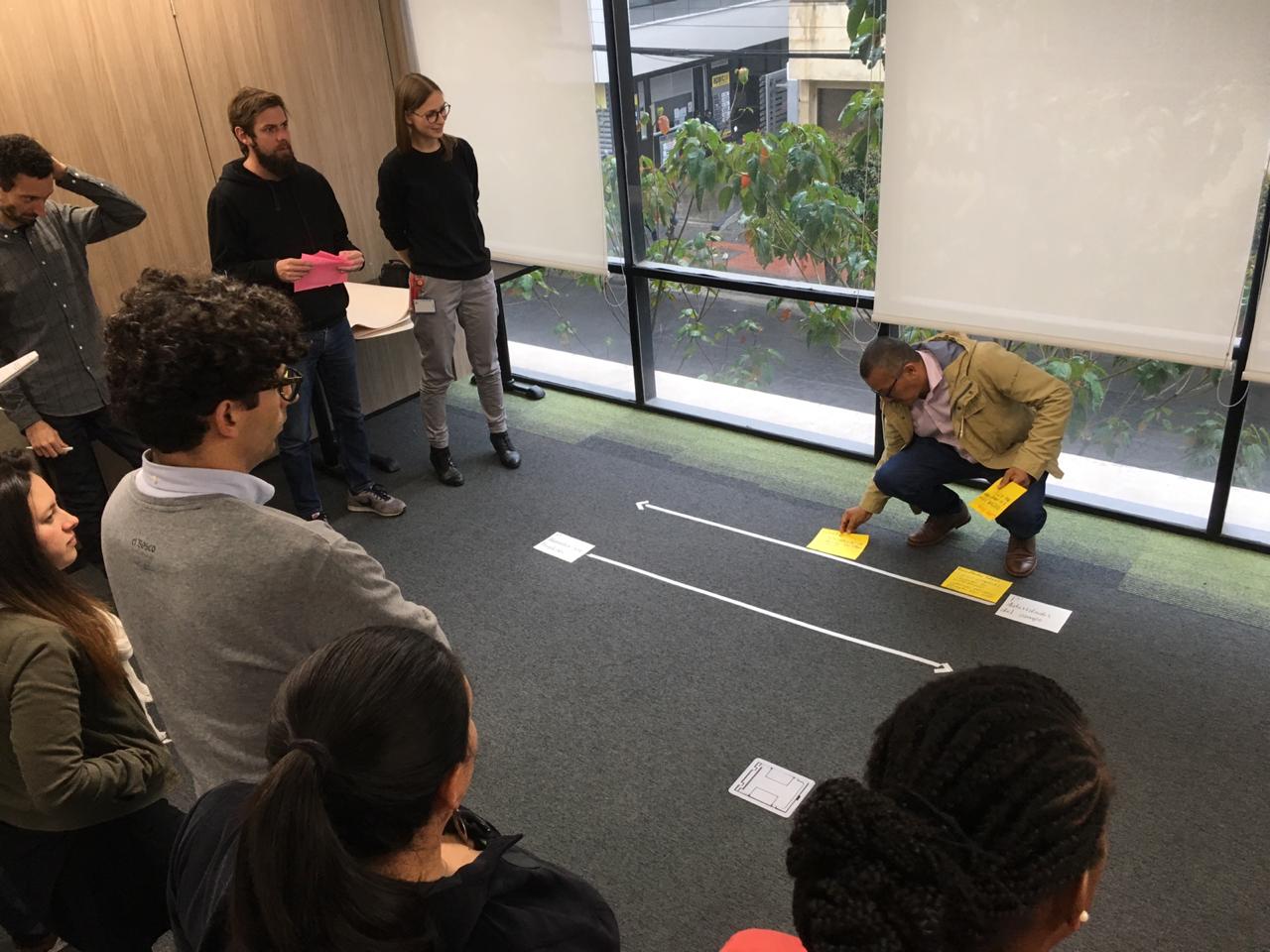
The Naivasha Grid was among the most popular tools. (Photo Credit: Sofia Mueller/CCHN)
In response to requests from regional offices of the Strategic Partners in Latin America, the CCHN organized a Peer Workshop on Humanitarian Negotiation (Taller de Negociación Humanitaria) in Bogota, Colombia from 12-14 August 2019. Participants who wished to dive deeper into the learning methodology could further attend a Training of Facilitators (Capacitación para Facilitadores).
The Peer Workshop provided a safe space to discuss and exchange negotiation experiences. Most of the participants were based in Colombia and neighboring countries.
In terms of content, participants identified a number of humanitarian challenges on the continent that require difficult negotiations at all levels, related to the current situations in Latin America.
“The workshop was very practical, clear and useful,” said Katherine Catamuscay who works for the Norwegian Refugee Council (NRC) in Panama. “One of my expectations was to better understand how to negotiate at different levels. The workshop gave us practical information, tools and methods to do that.”
For Henry Montano, Program Officer of the World Food Programme (WFP), the most interesting aspect of the workshop was hearing the different experiences of colleagues negotiating in Colombia. “Being a facilitator gave me a panoramic view of humanitarian negotiations in Colombia,” Montano said. As a member of the CCHN Training of Facilitators Program, Montano was responsible for guiding participants through the different steps of the methodology.

Participants were divided in small groups and played a negotiation scenario. (Photo Credit: Joelle Germanier/CCHN)

Participants practiced facilitating the identification of red lines and bottom lines during the Training of Facilitators. (Photo Credit: Marcia Vargas/CCHN)
Coming Back for More
The Peer Workshop Program aims to introduce field practitioners to a practical negotiation toolkit. For those who want to go a step further, the CCHN offers a series of advanced-level activities. In Colombia, it hosted a Training of Facilitators.
More than a dozen Peer Workshop participants stayed on for the training. Many others who had previously completed a Peer Workshop also joined to gain a more in-depth understanding of the CCHN methodology.
Marcia Vargas, CCHN Focal Point for Latin America who ran the session in Bogota found that “Participants created a really positive atmosphere. The training allowed them to refresh their memory about CCHN tools and methods. We look forward to continuing working with them and hope they will carry the CCHN toolkit into their own organizations.”
Both activities were conducted in Spanish so that participants were more comfortable expressing themselves while sharing their negotiation experiences and opinions.
